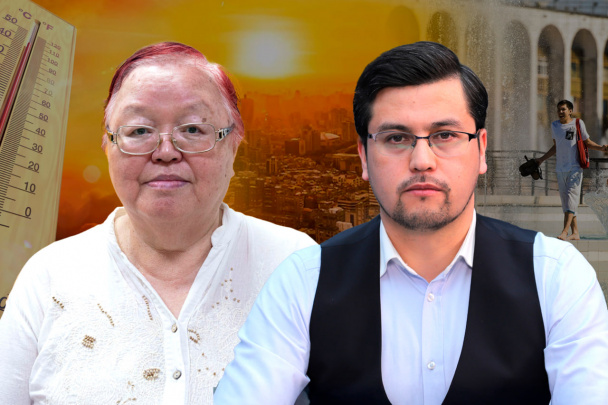Experts blame economic strain and social pressures for growing mental health crisis in Uzbekistan
According to the Mental State of the World international study, the population of Central Asian countries is not faring well in terms of mental health. All republics of the region ranked in the bottom ten of the global list, while residents of the leading countries reportedly feel mentally balanced for an average of 21 days per month. Psychologists and sociologists interviewed by Kun.uz say economic hardship is the main driver of pessimism in Uzbekistan. In addition, iodine deficiency, synthetic food products, and restrictive social norms are also taking a toll on people’s mental well-being.
Central Asians are far from mentally sound, according to the study, and Uzbekistan is among the lowest-ranked countries. Let’s take a closer look at this research.
Uzbekistan ranks near the bottom globally in terms of mental health. In the Mental State of the World report, the country placed 74th out of 83 nations. That said, Uzbekistan still ranked slightly ahead of its neighbors Kazakhstan, Kyrgyzstan, and Turkmenistan. Overall, the mental health situation remains critical across the Central Asian region:
• Kazakhstan – 76th
• Kyrgyzstan – 79th
• Tajikistan – 80th
The global average mental state index is 63 points, which means people generally feel stable and active for about 21 days each month. However, Central Asian countries fall far short of this benchmark. Uzbekistan scored 54.5 points, while Kyrgyzstan and Tajikistan both scored 51.2. Kazakhstan, at 52.3 points, is roughly on par with Brazil, South Africa, and even Afghanistan.
Despite ongoing conflict, citizens of Ukraine and Russia showed more positive results. Notably, Israel ranked 4th in mental well-being.
Experts say a mix of factors is contributing to the worsening mental state of the population – including anxiety, depression, exhaustion, loneliness, and unresolved internal issues. Globally, one in every eight people – nearly 1 billion out of 8 billion – suffers from a mental health disorder. Teenagers are the most vulnerable group, with half of all mental disorders beginning before the age of 14.
According to psychologist Madina Shukurova, who spoke to Kun.uz, the population’s physical health is also compromised, with iodine deficiency being one of the major issues.
“When we were kids, iodine was distributed in schools. Today, such programs don’t function at all. On top of that, we’re bombarded with information daily. Scrolling through endless content before bed and overusing social media disrupts our natural biorhythms,” she explained.
Shukurova also emphasized that the consumption of artificial food products is having a profoundly negative effect on people’s overall health.
Sociologist Mahmud Yuldoshev believes that the primary reason behind widespread feelings of hopelessness in Uzbekistan is economic hardship. However, he adds that people who are engaged in work are less likely to suffer from depression. He stresses the need for proper resource allocation by the government – especially investment in education, youth, the elderly, and the country’s future.
Psychotherapist and addiction specialist Zebiniso Akhmedova says motivational slogans alone are no longer enough to distract people from their daily struggles. Rising obesity, drug addiction, disrupted sleep patterns, and large family sizes are all contributing to chronic stress. A particularly serious issue, she says, is how aging is misunderstood in society.
“When we talk about the elderly here, people think of someone bedridden for 7–8 years, cared for by their children and daughters-in-law. We are in the middle of a major crisis in how we view aging. In reality, old age can be a healthy life stage – Japan and Korea have proven this. Aging isn’t only about physical decline,” Akhmedova noted.
Umida Yakubova, an active community member working with women, says that mentality and social attitudes are among the core reasons behind the population’s growing mental instability.
“Everyone complains about economic shortages, salaries not being enough, pensions falling short. People gossip constantly – about their in-laws, daughters, sons-in-law. Girls who get married often return home within two months. Divorce rates are rising. People don’t understand each other. All of this is affecting the country’s collective mental health,” she said.
The interviewees also pointed out that a prevailing sense of negativity – the tendency to view everything in a pessimistic light – is further worsening the overall mood of society.
Related News

12:10 / 26.07.2025
Extreme heat could slash Central Asia’s GDP and overwhelm public services

10:34 / 26.07.2025
Central Bank survey: People prefer mid-value notes and rarely use UZS 200,000 bills

18:11 / 25.07.2025
Average salary in Uzbekistan climbs to nearly UZS 6 million, with teachers and doctors still earning below average

12:39 / 23.07.2025



